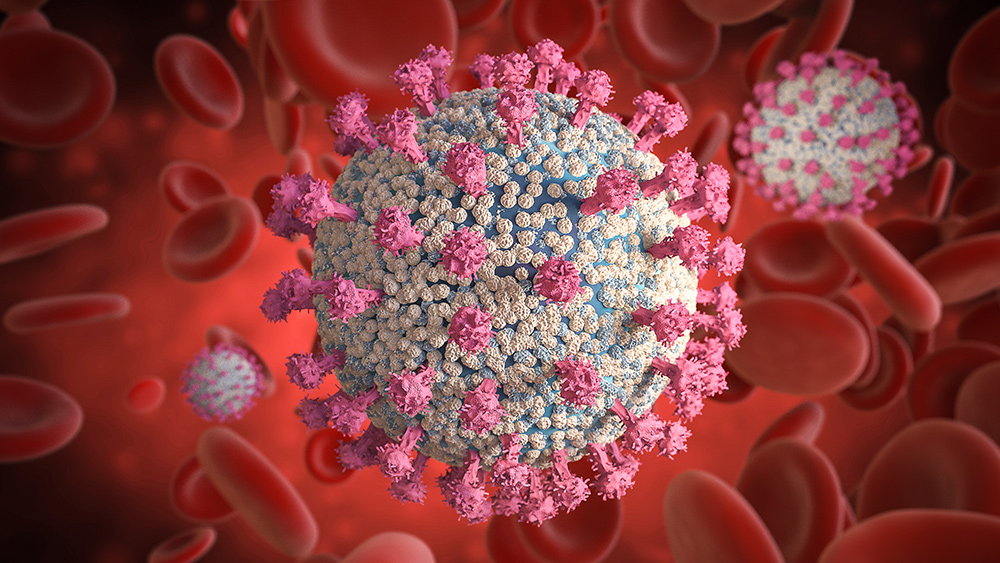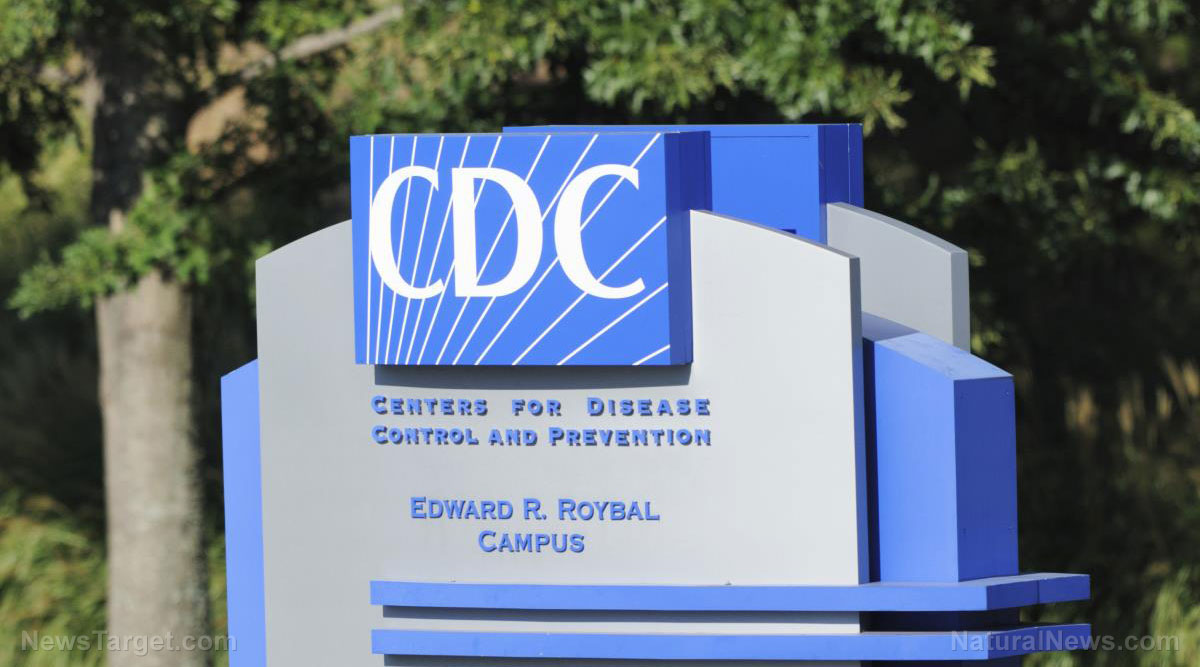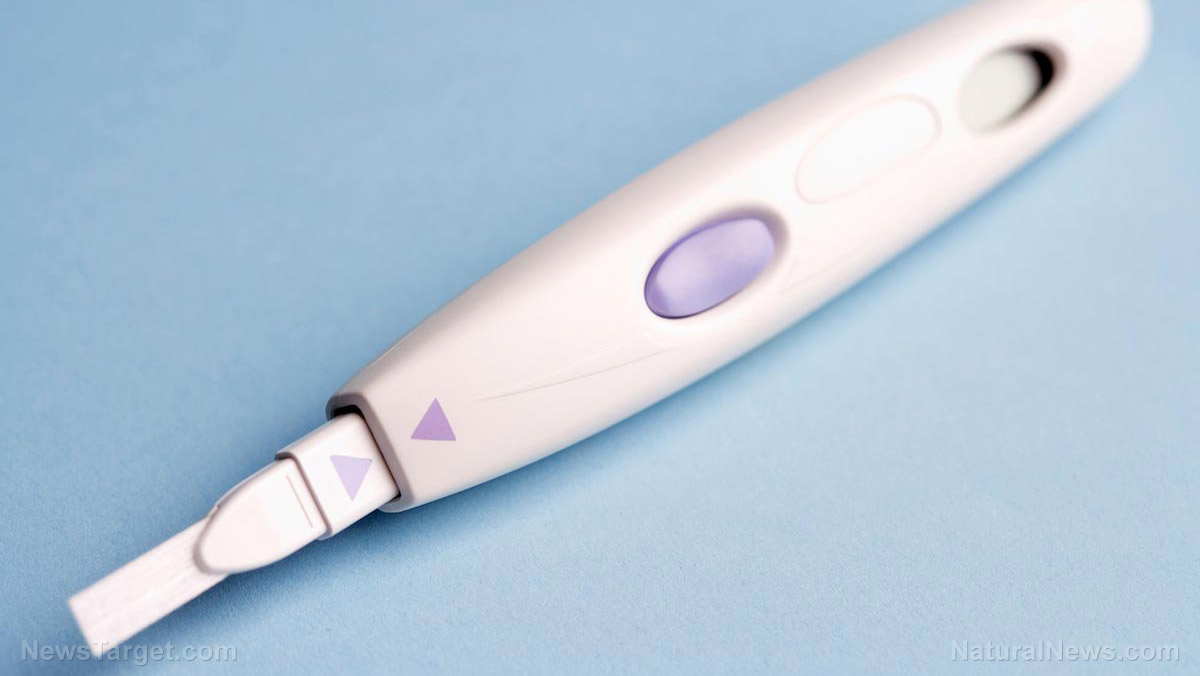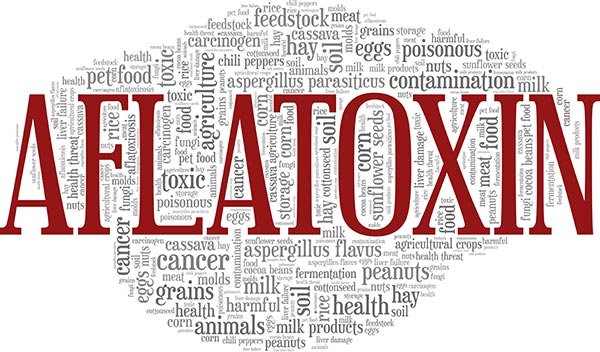Study: Consumption of processed foods can negatively affect brain function
09/08/2022 / By Zoey Sky

People eat processed food for different reasons. Some may be craving sweet or salty snacks, while others may want to eat something cheap and convenient.
However, many studies have shown that consuming highly processed foods can increase your risk of chronic diseases like obesity, diabetes, certain cancers and heart disease.
According to new research, consuming processed foods can also negatively affect your brain function.
Link between brain health and diet
The research was presented last month at the Alzheimer’s Association International Conference in San Diego. It showed how highly processed foods are linked to a significant increase in the rate of cognitive decline. According to the researchers, it only takes about 100 calories — the equivalent of two cookies — from processed foods to negatively affect your health.
Processed foods refer to the different brands and kinds of ready-to-eat foods on grocery store shelves. The biggest culprits are sugary drinks, instant noodles, canned soups and frozen meals.
Processed and ultra-processed foods
Processed foods contain many substances that the human body isn’t meant to ingest. When these substances enter your body, they can wreak havoc and trigger inflammation that can affect the brain’s neurotransmitters.
Additionally, various substances from processed foods operate at the micro level and introduce billions of bacteria that attack different bodily systems. These substances can also impair functions on several levels, including cognition. (Related: Study: Ultra-processed foods linked to increased risk of developing inflammatory bowel disease.)
Even though nearly all foods are processed to some extent, this doesn’t make them unhealthy. For example, manufacturers process dried beans to make them shelf-stable, but they’re a good alternative if you don’t have access to fresh beans.
The researchers separated foods into four categories based on the extent of processing. They used NOVA, a food classification system developed by researchers at the University of Sao Paulo in Brazil.
- NOVA Group 1 – This group refers to minimally processed and unprocessed foods like beans, fruits, grains, nuts and vegetables. These foods may have gone through processes like boiling, pasteurization or roasting to increase shelf life or make them safe to eat.
- NOVA Group 2 – This group refers to processed culinary ingredients obtained directly from group 1 foods or from nature. This can include foods like maple syrup, olive oil and salt. Group 2 foods are usually ingredients used in the preparation and cooking of Group 1 foods.
- NOVA Group 3 – This group refers to processed foods, such as items made by adding ingredients like salt, sugar or other substances from Group 2 to Group 1 foods. Examples include fresh bread, fruits in syrup and cheese.
- NOVA Group 4 – This group refers to ultra-processed foods. These contain little to none of the foods or ingredients from Group 1. These items are meant to be convenient, hyper-palatable and cheap.
Ultra-processed or highly processed foods usually contain harmful ingredients, such as:
- Artificial sweeteners
- Bulking agents
- Colorants
- Flavorings
- High-fructose corn syrup
- Hydrogenated oils
- Hydrolyzed proteins
- Modified starches
Below are some examples of ultra-processed foods. Limit these foods or avoid them to maintain healthy brain function:
- Baking mixes such as cake and stuffing mixes
- Boxed pasta products
- Candies and other confectionery
- Cocoa mixes, ice cream and sweetened yogurt
- Energy and protein bars and shakes
- Frozen meals like TV dinners
- Margarine and other ultra-processed spreads like as sweetened cream cheese
- Meal replacement shakes and powders marketed as weight loss products
- Packaged breads and buns
- Powdered and packaged instant soups
- Reconstituted meat products such as hot dogs and fish sticks
- Sugary beverages like carbonated soft drinks and sugary coffee drinks
- Sweetened breakfast cereals and sweetened oatmeals
- Sweet or savory packaged snacks like chips and cookies
Tips to improve your eating habits and avoid processed foods
When you’re in a hurry to get to work, eating processed foods for breakfast may seem more convenient because you don’t have to spend so much time in the kitchen.
However, any advantage this “convenience” gives you comes at a heavy price: your health. If possible, limit your consumption of processed and ultra-processed foods to boost your overall well-being.
Generally, foods like fresh vegetables and fruits, beans, chicken, eggs and fish are considered unprocessed or minimally processed. They are often called “whole foods” since they are in their original, whole form, or at least very close to it.
Here are some examples of healthy whole foods that you can incorporate into a balanced diet:
- Fresh milk and plain yogurt
- Fruit or vegetable juice without added sugar
- Herbs and spices
- Grains like brown rice, quinoa and buckwheat
- Legumes like beans and lentils
- Meat, poultry, fish and eggs
- Nuts and seeds
- Starchy root vegetables like cassava, potatoes and sweet potatoes
- Tea and coffee
- Vegetables and fruits, like fresh, frozen, or unsweetened dried produce
Follow these tips to eat less processed food and more whole foods:
Shop smarter
If money is an issue, you can save by buying whole foods at places like bulk bin stores, butchers, fruit and vegetable stores and local markets.
Buying whole foods will cost you less because these foods are more filling than highly processed foods.
Start small by aiming for at least 40 percent of the food in your weekly grocery trip to be vegetables and fruit. Shop seasonally and wait for store specials, promotions and sales.
Check food labels
Packaged foods are convenient and tasty, but they’re also made with many ingredients that are hard to pronounce. This is an obvious sign that something is highly processed.
And don’t be fooled by processed foods marketed as “natural,” “organic” and with “‘no added sugar” since this doesn’t always guarantee the product is healthy.
Check food labels and read the Nutrition Information Panel. Choose products that contain the least amount of saturated fat, sugar and sodium (or salt) per 100 g.
When it comes to the 3Ss (saturated fat, sugar and sodium), less is best. For example, rolled oats contain only 5 mg of sodium per 100 g, while some breakfast cereals contain around 400 mg of sodium per 100 g.
Cook at home
When you cook a meal from scratch, you can control the ingredients and use more whole foods. If you’re busy, opt for quick and easy “go-to” meal ideas like couscous salads, omelets, stir-fries or vegetarian meals.
You can also save time by meal prepping or cooking large batches of food that you will eat for one week or more.
Another option is to sign up for meal prepping services that will deliver ready-to-eat to your home for a fee. However, you need to make sure that your chosen services offer clean, organic and fresh options.
Snack on whole foods, not processed foods
Snack foods are usually ultra-processed. But simple snacks like fresh fruit and vegetables, nuts and seeds are some of the healthiest snacks that can help you feel full longer between meals.
Make realistic food goals
Whenever possible, swap processed foods with whole foods like fruits, veggies and lean meats.
Aside from eating more whole foods and less processed foods, exercising regularly is also key for maintaining optimal health. Staying hydrated as you exercise will also help flush toxins out of your system.
Eat nutritious meals made with fresh, whole ingredients to improve your brain health and overall well-being.
Watch the video below to learn how to make a delicious cucumber, tomato and avocado salad.
This video is from the My Favorite Dish channel on Brighteon.com.
More related stories:
Consuming highly processed foods linked to a higher likelihood of cancer.
US facing obesity problem as poor parents feed their children cheap, unhealthy foods.
Sources include:
Submit a correction >>
Tagged Under:
brain function, brain health, cognitive function, cognitive health, fast food, food science, franken food, grocery, health science, products, research, toxic ingredients
This article may contain statements that reflect the opinion of the author




















